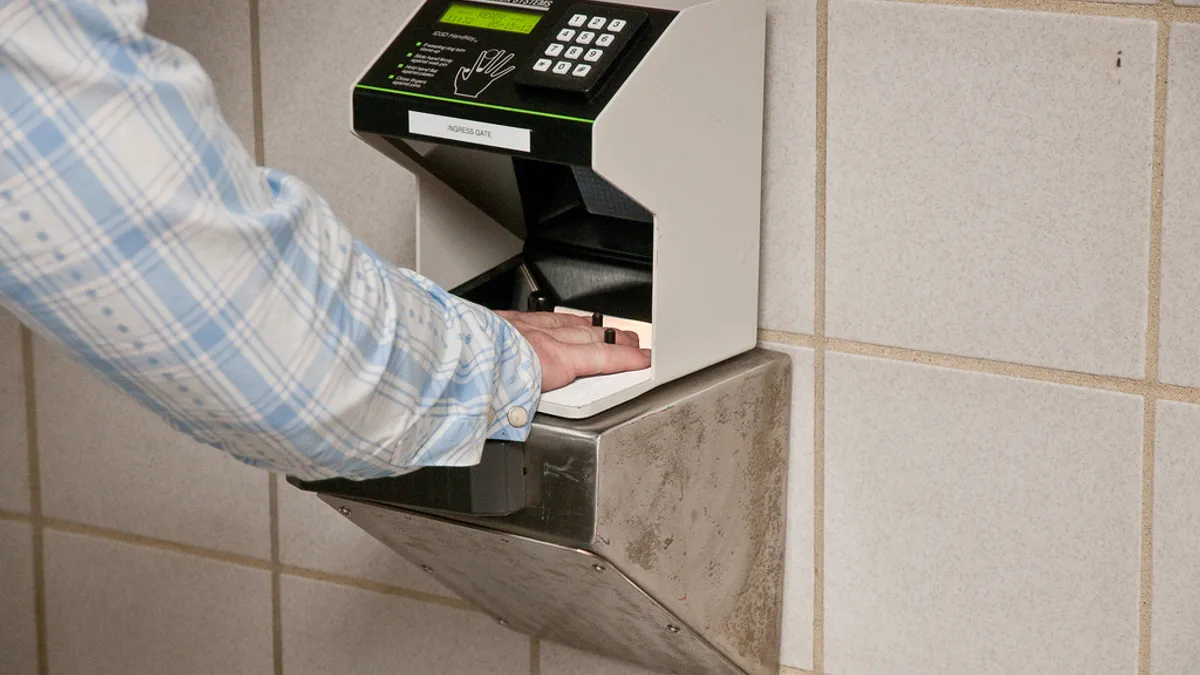Dive Brief:
-
About 62% of organizations use biometric authentication technologies, according to a Spiceworks survey of 500 IT professionals in North America. But in the next two years, an additional 24% plan on adopting the tech.
-
Biometrics, like fingerprinting, are most popular on smartphones while about one-fourth of organizations use finger print scanning laptops followed by tablets and time clock systems. Already more than half of organizations use finger scanning in some way.
-
Resistance to adopt biometric technologies stems from cost, reliability, upgrade requirements and concerns over where the biometric data will be stored. More than 40% of respondents said employees are reluctant to adopt the tech partially because of privacy concerns.
Dive Insight:
Biometrics include everything from fingerprinting to facial recognition and will most likely replace existing forms of authentication like passwords.
By 2020, about 300 billion passwords face a risk of becoming compromised, which could end up costing up to $6 trillion by 2021. Strong passwords are embedded in the fabric of security basics and without them, the foundation of a company's security is threatened.
The vast majority of breaches are a result of mishandled credentials, which gives rise to security concerns over biometric authentication. More than 60% of IT professionals said they are worried about false positives or replicated identifies, according to the report.
As of now, IT professionals don't trust the security of biometrics. Instead, users could creating a hybrid model of biometrics and text-based passwords to serve as a new form of multi-factor authentication.
But if all else fails, inserting a microchip in an employee's hand is still an option.














